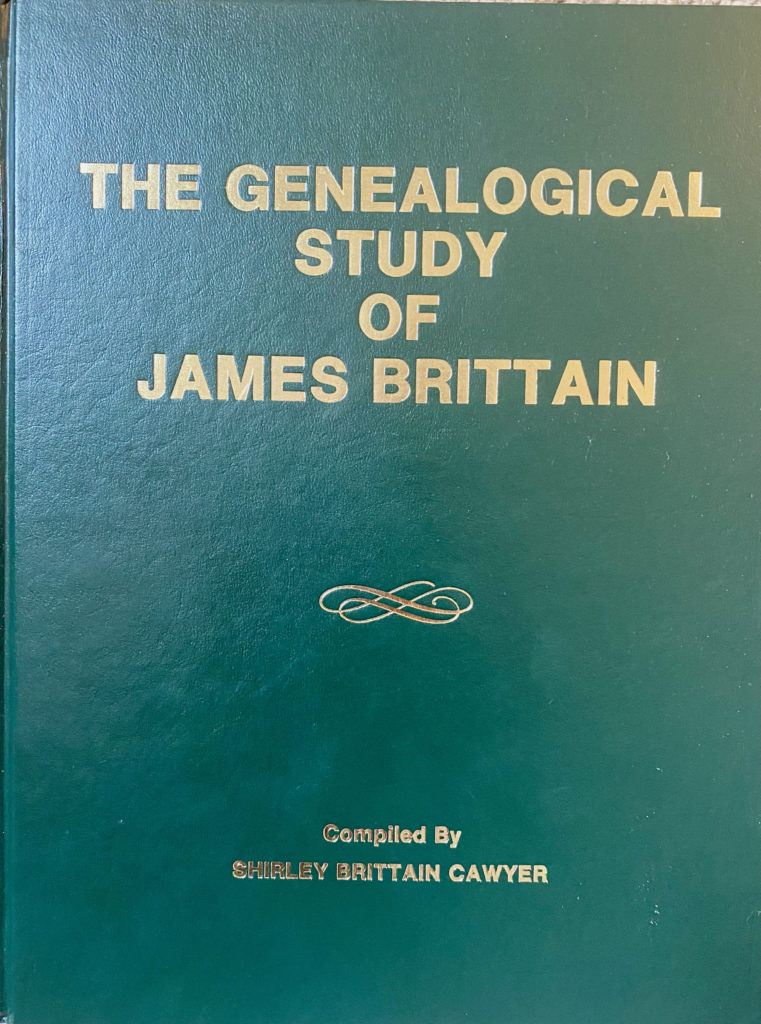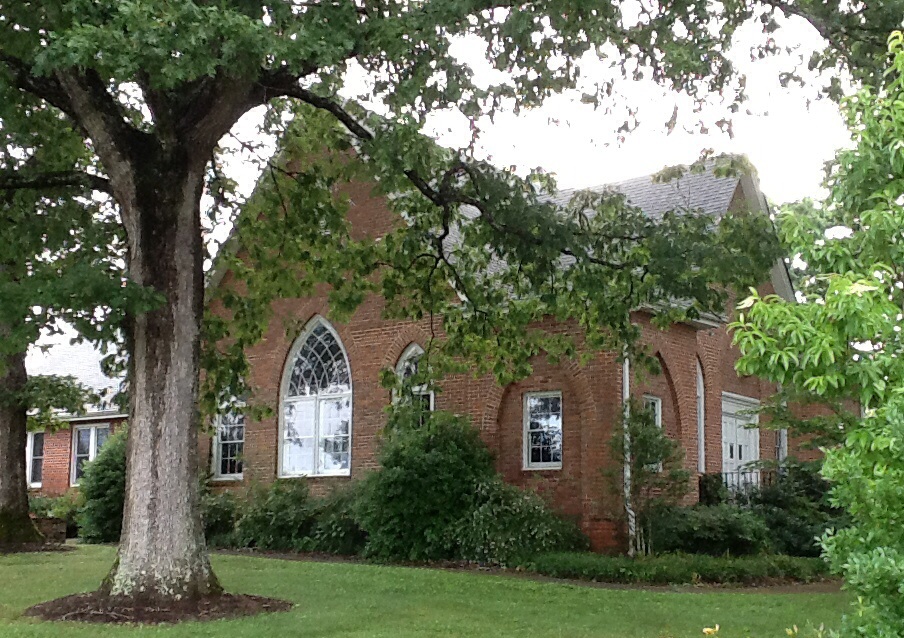You know you belong to a time and a place when your name is printed in a book. For my mother and I, the place was Asheville and the book was the Genealogical Study of James Brittain of Buncombe County. This hefty volume is filled with thousands of descendants, though the number of offspring is less surprising when you realize this man had fourteen children!
For our family, the book provides a sense of pride. You see, James Brittain was a colonel in the Revolutionary Army. His stories are legendary (at least among the Brittain clan). One story goes that J.B. sent a letter to King George III. This was the first declaration of independence from any of the royal colonies. In it, he claimed to be an official representative for North Carolina and demanded separation from the king. The loyalists were not pleased. They threatened to run J.B. out of town.
To be clear, we have no proof such a letter was ever written. When it comes to history, one can’t always know which stories are facts and which are just fabulous. Stories get passed around, watered down, or flipped upside down until the truth hardly matters.

My mother was raised in Birmingham, Alabama. She always imagined Asheville had “rolling hills, grand castles and people that treat you like family.” At least that’s how she described it to me twenty years ago, when she invited me to travel to the family homeland. This is where our adventure began.
Most of our trip was spent exploring the endless treasures that Asheville has to offer: charming shops and delicious food. At one point we passed a dilapidated old boarding house. It seemed the building was just begging to be restored. For a moment, my mother and I imagined what it would be like to live in Asheville and take on such a project.
But our first stop on the journey was a cemetery filled with tombstones carved with the Brittain name. I always have a feeling of foreboding in a graveyard. It reached a whole new level to see my family name repeated dozens of times. It felt like I might belong there, too.
Nearby, we found a tall granite marker dedicated to James Brittain on the lawn of a country church. This monument was erected by the Daughters of the American Revolution. It looked more like a headstone than a tribute. It was strangely out of place.
No such luck. During the service, we were asked to stand. A brief introduction was followed by loud applause. When I sat down again, the woman next to me leaned over. She asked, “Are you in the book?” I nodded, “yes,” having no idea it carried such a weight of authority. Clearly, we belonged.

The doors to the Mills River Presbyterian Church stood open wide. This was a red brick building stacked with historic charm. Sunday morning music floated on the breeze. We tried to get a peek inside, even though we were not dressed for church. The greeter stepped out to welcome us. When my mother introduced herself as Betty Brittain, there was an air of excitement. The greeter insisted we stay for service. My mother and I sat in the back, trying to remain inconspicuous.
After the service, members took turns greeting us in a way that can only be described as a formal receiving line. One congregation member said, “You must visit Rose. She knows just about everything about your people.”
We took the address. With great anticipation, we knocked on the door. Rose answered.
“Hi there,” my mom said. “We just came from the Mills River Presbyterian Church, and hear you know a lot about our family, the Brittains.”
Rose’s eyes narrowed. Her arms folded. Her posture changed. “Are you one of those Brittains? Are you in the book?” We nodded, of course, expecting the same reception we’d seen before. Rose threw open the door. With a prickly voice she said, “You’d better come in then, ‘cause I’ve got a bone to pick with you!”
To say we were surprised (and just a little scared) is an understatement. It felt as if we were entering a well-laid trap. Her home was filled with crocheted blankets and lace curtains, tea pots and faded photos. We sat on the couch while Rose poured lemonade.
Rose said, “That ridiculous headstone does NOT belong next to my church. I can hardly stand to look at it. Some say your great, great, whatever gave the land for that church. But that land really belonged to my family. The fact that your ancestor gets so much credit around here is a shame – a shame, I tell you. My family’s story is just as good, and probably better. But we don’t have a book. You’ve gotta give people their rightful credit and nothing more. I’m just sick of it.”
It was as if Rose had been waiting her whole life to set this record straight. She unleashed what felt like generations of frustration upon us. Her tirade sounded rehearsed – as if she had made this speech many times before. I imagined a family feud dating back centuries, like the Hatfields and McCoys, but with less shooting and more passive-aggressive headstone placement.
Rose reached down to pet her cat. I whispered into my mother’s ear, “Don’t drink the lemonade.” I was joking of course, but I could have been watching a live performance of Clue. I could imagine Rose spiking the drink with a little poison… for flavor.
My mother tried to ease the tension. “Rose, it was so long ago, I have no real attachment to that headstone. I never saw it before today. Who knows what really happened so many years ago? You could just take it down, for all I care.”
“Yeah,” I echoed. “Just go knock it down!”
This caught Rose by surprise. I think she was hoping for a fight. I continued to describe how she could steal that monument late on a Saturday night. This image made me laugh out loud considering that rock outweighed her by a ton.
Once she saw we were not invested in our family history, she invited us to dinner. We were no longer “those” people, and she suddenly treated us like family. Still cautious, we declined the invitation. I feared her “bone-picking” was not finished.
It has been twenty years since that visit to Asheville. My mother has passed. I’m planning a return trip. I discovered the Gray Rock Inn is open for guests — that beautiful, once-dilapidated old boarding house has been renovated in the fashion it deserves.
Keep the lights on Gray Rock Inn, I’m coming home.
